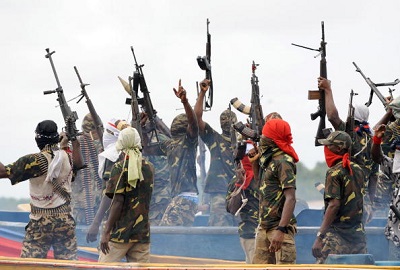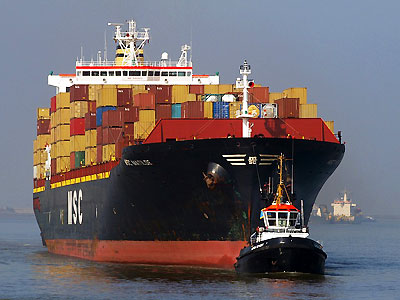The Business Of “Ways And Means” And How Nigerians live in Denial

Nigeria’s government officials like living in denial. It is surprising to note that the nation’s apex bank still print money for the Federal Government under the cover Ways and Means to meet some critical needs of the state. Recall that the Edo State Governor, Godwin Obaseke blew the lid when he said that Federal Government was printing money. The Central Bank of Nigeria officials under Buhari Muhammedu. denied it. Today it is very obvious that Obaseke was right. The same game is being played with fuel subsidy in this Tinubu era. Prices and other economic indices point to the fact that they have resumed payment of the subsidy obligation. Yet all the government officials still deny that there subsidy. Currently, the Federal Government has 30triillion obligation to meet with the CBN..
The phrase “ways and means” started before anyone using it today. It originated from the 17th century British Parliament and referred to “the provision of revenue to meet national expenditure requirements.” The phrase was always used by Nigerian economists and finance experts to explain debt and inflation, but it became popular when former President Muhammadu Buhari’s administration began to see it as the last resort.
For starters, “ways and means” in the Nigerian context occurs when the Federal Government obtains loans from the Central Bank of Nigeria (CBN). Yes, the Federal Government is allowed to borrow from the apex bank through “ways and means” to meet short-term needs or emergencies. This explains why the CBN is known as “lender of last resort.”
However, such borrowing is different from going to the World Bank, the International Monetary Fund (IMF) or China for loans. Borrowing via ways and means must be temporary and should only occur “in respect of temporary deficiency of budget revenue,” according to Section 38 (1) of the CBN Act. This means that the CBN can only lend to the Federal Government when the latter has a temporary revenue shortfall.
Abuse of ways and means
However, outgone President Muhammadu Buhari abused the ways and means advances. In fact, he violated the CBN Act.
Section 38 (2) of the CBN Act makes it clear that “the total amount of such advances outstanding shall not at any time exceed five per cent of the previous year’s actual revenue of the Federal Government.” However, Buhari overshot the five percent ceiling and grew ways and means from N856 billion to N23.8 trillion, representing 2,635 percent in seven years.
In 2017, actual revenue was N2.7 trillion but ways and means stood at N1,1 trillion, representing 37.2 percent of the previous year’s revenue (N2.95 trillion). This is against the spirit of Section 38(2) of the CBN Act.
In the following year, 2018, actual revenue stood at N3.87 trillion whereas ways and means was estimated at N2.1 trillion,
Ordinarily, Buhari’s administration should not have taken more than N135 billion ways and means, which was five percent of N2.7 trillion revenue realised in 2017. However, Buhari took ways and means which was 77.8 percent of the previous year’s revenue.
In 2019, actual revenue was N4.12 trillion while ways and means stood at N3.3 trillion, indicating 85.27 percent of the 2018 revenue.
In 2020, actual revenue was N4.04 trillion, with ways and means standing at N4.4 trillion, representing 107 percent of the previous year’s revenue, meaning that Buhari borrowed 7 percent more than the revenue realised in 2019 from the CBN.
In 2021, actual revenue was N 4.64 trillion while ways and means was N4.3 trillion, representing 106.4 percent of the 2020 revenue. In 2022, actual revenue was N6,49 trillion whereas ways and means advances stood at N6.4 trillion, representing 138 percent of the 2021 revenue.
Are “ways and means” loans?
There have been several arguments as to whether ways and means should be described as loan or something else. Many have contended that it should not be considered as part of Nigeria’s loan profile.
But, let us examine the meaning of loan? Investopedia, a business and investment dictionary, defines a loan as “a type of credit vehicle in which a sum of money is lent to another party in exchange for future repayment of the value or principal amount.”
Hence, ways and means are clearly loans that should be repaid. In fact, Section 38 (2) says “all advances made pursuant to this section shall be repaid as soon as possible…” The section also says that it should be repaid with interest.
However, outgone President Buhari smartly got the approval of the Senate and securitised the ways and means. These loans will thus be converted into long-term bonds and be sold to the investors, including you. How smart can that be?
Implications
There are several implications of this. First, it is a violation of the Nigerian laws, which must not be condoned. It means the Federal Government or any president in power can violate the laws and get away with it.
Two, ways and means increases inflation by raising liquidity in money or capital market. Money market is a market where short-term instruments are traded. Examples of such instruments are treasury bills and mutual funds. On the other hand, the capital market is a market dealing with long-term instruments such as bonds. It also means a market where bonds and stocks are traded.
By securitising ways and means, rather than pay back to the CBN, the Federal Government simply puts too much money in the money or capital market. For instance, when you advertise a bond of N11 trillion value, investors will trade them -pay for them. This naturally increases liquidity in the economy.
It makes more money available in the economy, thereby fuelling inflation. The World Bank has also accentuated this position, stressing that “between 2020 and 2021, inflation left about eight million more Nigerians below the poverty line by increasing the total number of poor people to about 90 million.”
In other words, the CBN is part of the party that has worsened inflation in Nigeria in the last six years. The ordinary man in the street feels the pains of rising inflation rates in the form of high cost of living.
More so, it increases Nigeria’s debt servicing burden because each loan taken must be repaid with interest – however low. This leaves little resources for infrastructure and development programmes that will benefit the common man.
Also, it leaves Nigeria with little capacity to innovate. If the president can easily run to the CBN for loans without repaying, the capacity to leverage revenue avenues will reduce. This makes it hard for any government in power to fund programmes that can improve livelihoods.
So, what should the new sheriff in town, President Bola Tinubu, do with ways and means? Simple, devise more proactive ways of raising revenue and give the CBN some space.







